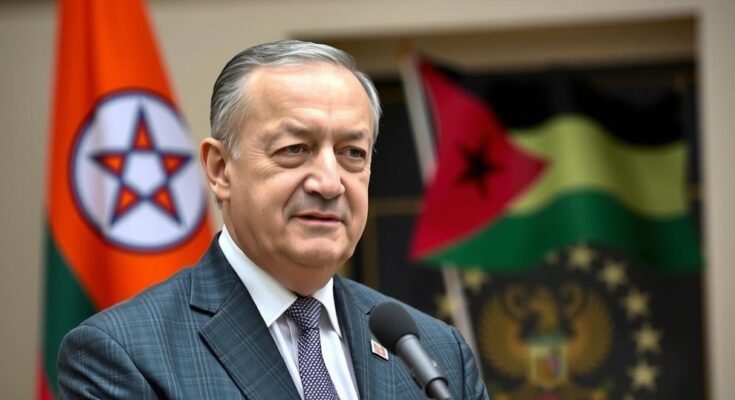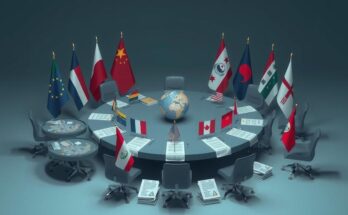In 2012, President Obama declared Syrian chemical weapons use a red line, threatening military action. Following a major chemical attack in 2013, diplomatic negotiations with Russia led Syria to join the Chemical Weapons Convention, yet substantial chemical stockpiles remain missing a decade later. The OPCW continues to report on Syria’s failure to comply with its obligations, emphasizing regional and global security concerns.
In August 2012, U.S. President Barack Obama made a statement regarding the use of chemical weapons by the Syrian government under Bashar Assad, declaring such actions a “red line” that, if crossed, would result in severe repercussions. Despite these claims, when evidence emerged of chemical attacks in 2013 that killed over 1,400 civilians, the anticipated military response did not transpire. Instead, diplomatic engagements with Russia led to Syria’s commitment to join the Chemical Weapons Convention and destroy its chemical stockpiles. However, a decade later, monitoring organizations, particularly the Organization for the Prohibition of Chemical Weapons (OPCW), have indicated that significant amounts of chemical agents, including 360 tons of mustard gas, remain unaccounted for, posing a substantial threat not merely to the region but to global security.
The context surrounding chemical weapons usage in Syria is deeply rooted in a protracted civil conflict that began in 2011. Initially, international focus centered on the humanitarian crisis and the atrocities committed against civilians. By 2012, attention shifted to the potential use of chemical weapons, which have historically invoked strong international condemnation and intervention. Obama’s initial declaration regarding a red line against these weapons aimed to deter their use, but subsequent inaction following breaches of this pledge shifted the trajectory of both U.S. foreign policy and the Syrian conflict itself, complicating the international response.
The failure to enforce accountability for Syria’s chemical weapons usage reveals stark deficiencies within international regulatory frameworks. Although initial steps were taken to dismantle Syria’s chemical arsenal through diplomatic negotiations, the ongoing noncompliance and the threats posed by potential misuse highlight a critical failure of international governance. As political dynamics evolve, particularly with the Syrian regime’s changing status, the imperative for rigorous oversight remains. Thus, the situation calls for renewed focus on international collaboration to address these significant security threats.
Original Source: www.arabnews.com




